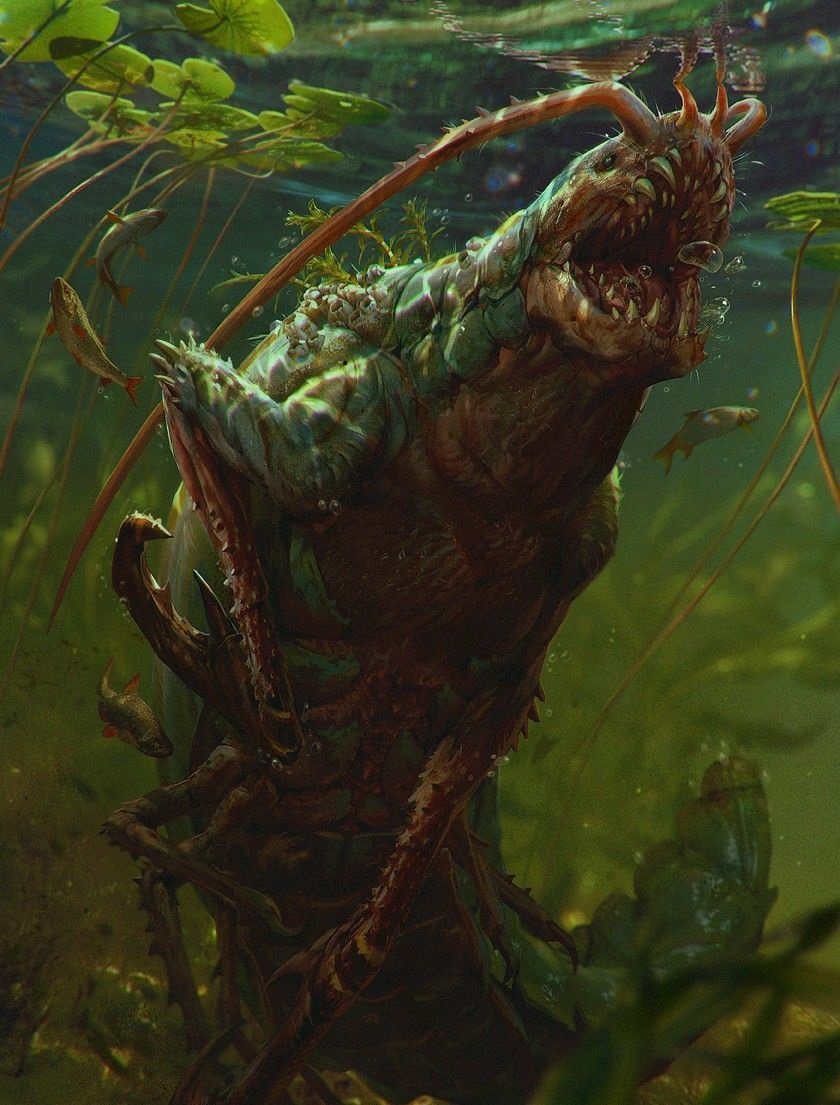Giant Crayfish
| Species | mollusk |
| No. Appearing | 1–4 |
| Behaviour | solitary |
| Range | profundal, wetland |
| Size | 8 ft. long |
| Weight | 1,300 lbs. |
| Intelligence | 0 |
| Armour Class | 4 |
| Hit Dice | 4+4 |
| Action Points | 4 |
| Max. Stride | {{{stride}}} |
| THAC0 | 18 |
| Hp/Die | d12 |
| Attack Forms | pincer/pincer |
| Damage | 2–12/2–12 |
| Special Attacks | capsizing, claw, surprise on a 1-3 |
Giant crayfish are intimidating lake creatures found along the wetland and sodden areas adjacent to freshwater lakes and tropical nyanza. They may also be found in drowned swamps. They dwell submerged holes dug into the hard clay, preferring to feed and rest beneath the surface. When hunting, giant crayfish wander swampy areas just below the surface, causing a wake that doesn't quite break the water.
Behaviour
They're largely scavenging creatures, but if provoked they've been known to attack. Giant crayfish have been known to attack small surface boats, capsizing or swamping water over the gunnels, attacking occupants with one claw before sinking below the surface.
Locals are careful to avoid these creatures, though sometimes if one can be found upon semi-soft or firm ground, a large gathering of villagers may attack it for the meat — a giant crayfish offers up to 200 lbs. of food or more; the fresh meat may even be sold, if the market can be reached within half a day. Still, finding the creature close to a bank is a rare thing.
Advantages
When attacking out of the water, crayfish surprise 1-3 out of 6. From the water, they can attack with only one claw; but if their legs find firm purchase on the bottom, they will attack with both. They always attack the same target when fighting with both claws.
The claws will seize a creature if the crayfish succeeds in stunning it; the claws will close in a vise-like grip. This causes 1-4 damage per round; to get free, the victim must have a strength of at least 18/30 or the crayfish must be killed. Once the crayfish has a victim, it will back into the water as soon as possible, in order to drown its victim — storing it underwater until it is ready to be eaten.
See Bestiary
